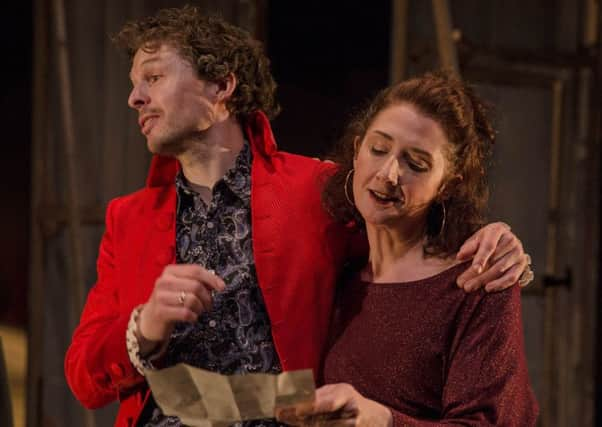Theatre review: Northern Star, Tron Theatre, Glasgow


Northern Star | Rating: **** | Tron Theatre, Glasgow
A lover of poetry and popular music, he was no warrior on either side of the question; but the very gentleness of his work, and its fine touch of the poetic and surreal – in plays like Spokesong and Pratt’s Fall, both seen at the Tron in the early 1980s - marked him out as a quietly fierce opponent of the cult of political violence and military glory, among both republicans and loyalists.
So when Parker’s niece Lynne, artistic director of Dublin’s Rough Magic Company, came to revive his 1984 play Northern Star – now playing at the Tron as part of the Mayfesto season – it was with more than an oblique reference to this year’s commemoration of the 1916 Easter Rising in Dublin. The play is a dream-like two-hour reflection on the last hours of freedom of Henry Joy McCracken, one of the Protestant leaders of the 1798 rebellion of the United Irishmen, perhaps the only clearly non-sectarian movement ever to take up arms for Irish independence. In Parker’s account, though, McCracken in the hours before his arrest is a broken and embittered young man, depressed by the triumph of sectarian violence over his dream of a united Irish movement, and hiding out in a ruined cottage with his lover Mary Bodell and their baby daughter, unable or unwilling to make his escape.
Advertisement
Hide AdIn style, Parker’s play has a certain 1980s look, a fierce doubling and trebling of roles, and a dream-like dipping in and out of historical and contemporary realities, that can seem a little self-consciously theatrical to 21st century eyes. Lynne Parker’s production, though – set in the wings of an old-fashioned theatre – takes full advantage of this aspect of the play, which makes its own harsh point about war and politics as a bloody theatre of public performance. And although some of the play’s elements of theatrical pastiche – ranging across the styles of playwrights from Sheridan and Boucicault to O’Casey – work better than others, Parker’s ensemble cast make a brilliant, sustained job of leading us through the fractured realities of the drama, sometimes entertaining, often heartbreaking. “Why did you allow yourself to be drawn towards violence?”, Charlotte McCurry’s beautiful young Mary Bodell cries to Paul Mallon’s passionate and doomed McCracken, towards the end; it’s the question that echoes down through recent Irish history, and remains both answered and unanswered, even today.
• Final performance Saturday